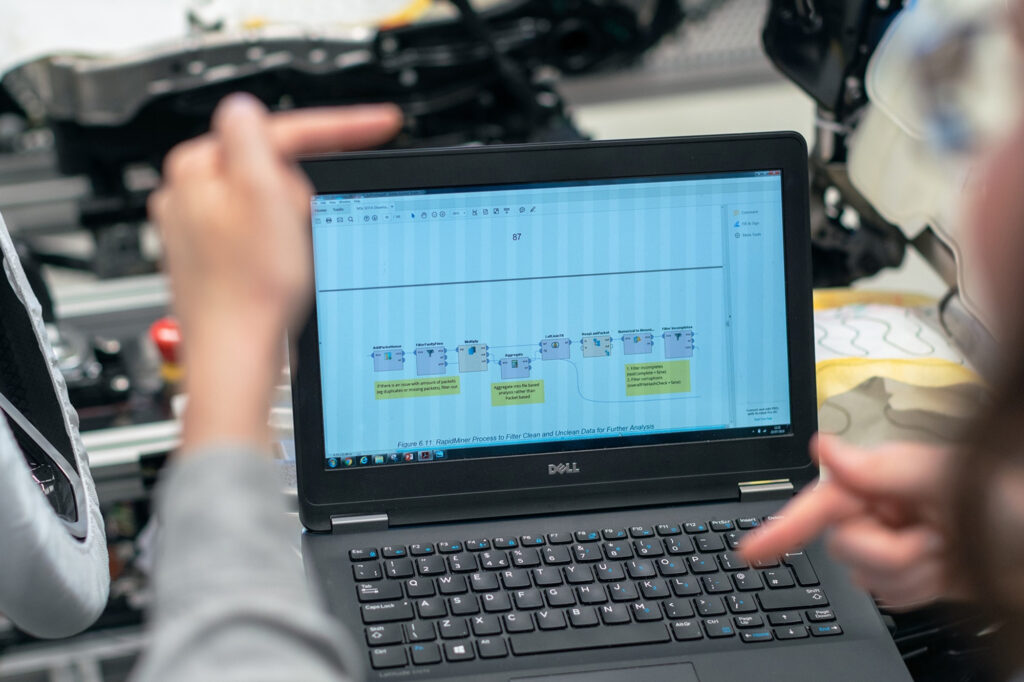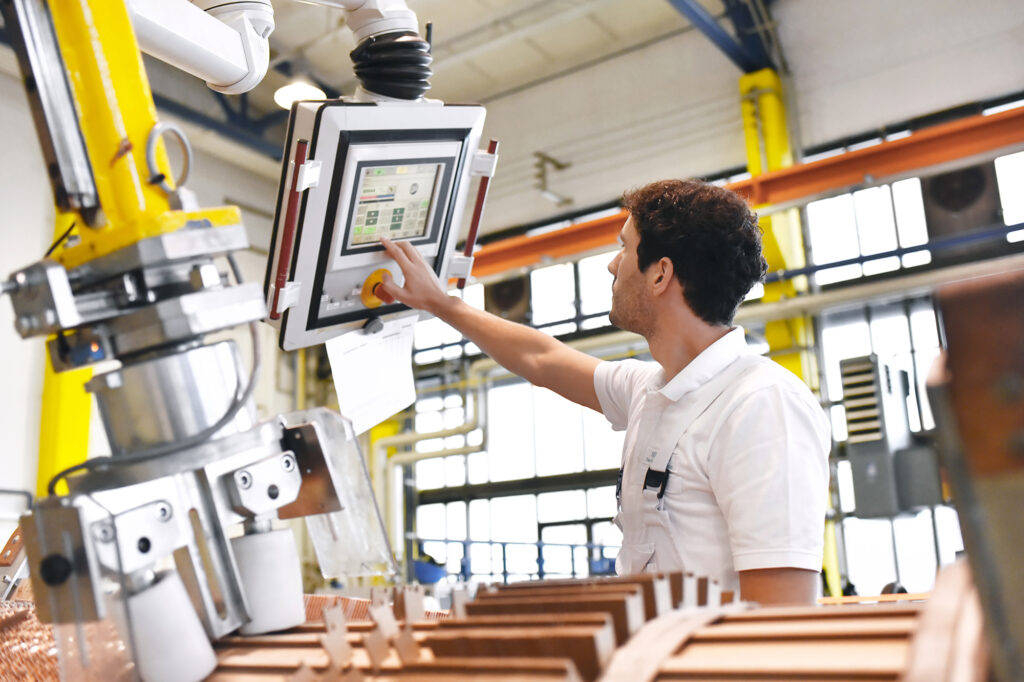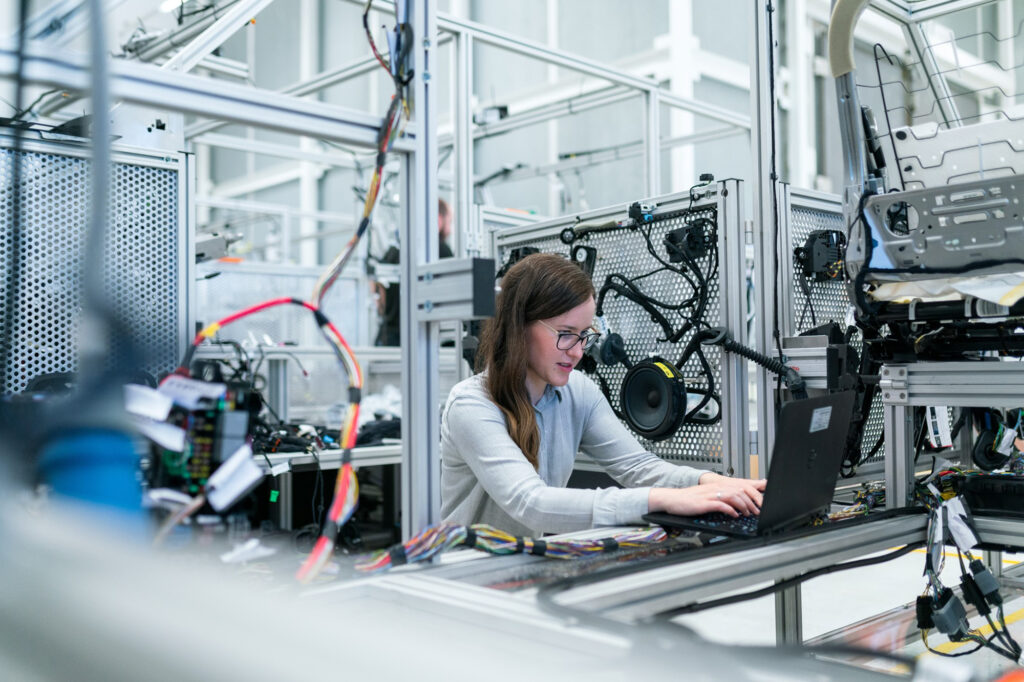杰艾控股白皮书:制造业 - 2023 年全球人力资源趋势
数字化转型是克服制造业现代危机的战略之一
Digital transformation as a strategy to overcome modern crises in Manufacturing
The global situation triggered by COVID-19, conflict in Ukraine, rising inflation and the shortage of raw materials is pushing the manufacturing industry to adopt new technologies.
目前,由新冠肺炎疫情、乌克兰冲突、通货膨胀加剧、原材料短缺引发的全球形势,正在推动制造业去采用新技术。
In recent research, conducted in Brazil, China, Germany, Italy, Poland, and the United Kingdom, we asked HR managers, plant managers and production managers about the challenges and opportunities of the 4th industrial revolution.
近日一份在巴西、中国、德国、意大利、波兰和英国范围内进行的研究中,我们向人力资源经理、工厂经理和生产经理询问了关于第四次工业革命的挑战和机遇。
Key Findings 关键性发现:
16.4 T$ (万亿)
全球制造业价值 Global Value of Manufacturin
84%
的企业已经引入智能工厂技术 Companies that have introduced Smart Factory technologies
66%
的企业表示很难找到专业工人 Companies that report difficulty finding specialised workers
76%
的专家认为持续学习至关重要 Experts that consider continuous learning vital
Economic Relevance 经济相关性
The backbone of social and economic development 社会经济发展的中坚力量
Despite widespread instability affecting all economies, the manufacturing industry is experiencing substantial growth.
尽管大环境的不稳定影响到了所有经济体,但制造业依然在经历大幅增长。
In 2021, the industry was worth 16.4 trillion U.S. dollars, a 21% increase on 2020.
2021年,该行业价值达16.4万亿美元,比2020年增长了21%。
Its economic importance is evident in the 17% share of the global Gross Domestic Product.
它在全球国家的国内生产总值(GDP)中所占份额为17%,其经济重要性显而易见。
This growth is welcomed by experts, who are generally optimistic about the industry’s development and highlight two new global trends: automation and sustainability.
这一增长得到了专家们的认可,他们普遍看好该行业的发展,并强调了两个新的全球趋势:自动化和可持续性。

Smart Factory 智能工厂
The 4th industrial revolution is here 第四次工业革命已经到来
Companies have access to a wide range of technologies to automate tasks. Our results show that 84% of companies have already implemented some digital solutions. The most common are cloud computing and digital integration, followed by big data analytics and cybersecurity.
许多企业已经开始使用各种各样的技术来实现项目自动化。我们的研究结果显示,84%的企业已经实施了一些数字化解决方案。最常见的是云计算和数字集成,其次是大数据分析和网络安全。
This trend is set to continue, and the global industrial automation market is predicted to grow rapidly, reaching 265 billion U.S. dollars by 2025.
而这一趋势将持续下去,全球工业自动化市场预计也将迅速增长,并将2025年达到2650亿美元。
22% of respondents indicated they would definitely implement digital technologies in the next five years, and 63% said they probably would.
22%的受访者表示,他们肯定会在未来五年内实施数字技术,63%的受访者表示可能会实施。
Experts believe new technologies will increase productivity and efficiency, but will also present some difficulties, such as a lack of operator skills.
专家相信新技术将提高生产力和效率,但也会带来一些困难,比如操作技能的缺乏等。

Labour Market 劳动力市场
Different roles, and a move away from physical labour 不同的角色,以及远离纯体力劳动
Labour shortage is one of the main challenges faced by Manufacturing. According to the study, 66% of companies have difficulty finding specialised workers.
劳动力短缺是制造业面临的主要挑战之一。据研究发现,66%的企业很难找到专业工人。
On one hand, the shortage can be attributed to fewer people wanting a blue-collar career and on the other, to difficulties finding workers with the necessary skills.
劳动力短缺一方面可以归因于想从事蓝领职业的人越来越少;另一方面是,现在很难找到具备必要技能的工人。
36% of interviewees believe the problem lies in the outdated belief that Manufacturing involves a lot of manual or low-skilled work.
36%的受访者认为,出现这些问题是由于过时的观念,即认为制造业是以大量手工或低技能工作为主的行业。
Nevertheless, 85% of experts believe that the demand for specific profiles is changing. Companies will increasingly need Data Analysts and Scientists, while factory-floor workers will be increasingly focused on setting up machinery and monitoring production quality.
然而,85%的专家认为,对特定职位的需求正在发生变化。企业将越来越需要数据分析师和科学家,而工厂工人将越来越专注于机械配置和生产质量监控。

Continuous Learning 持续学习
Combatting the labour shortage and upskilling your workforce 解决劳动力短缺问题,提高劳动力工作技能
Training is crucial to developing the skills of current employees, attracting new workers, and overcoming labour shortages. According to the research, 76% of experts consider continuous learning key to ensuring lifelong employability.
培训对于提高现有员工技能、吸引新员工以及克服劳动力短缺至关重要。根据研究,76%的专家认为持续学习是确保终身就业能力的关键。
42% of respondents consider employee training the best solution to the skills gap, because it combines acquired work experience with new skills.
42%的受访者认为,员工培训是解决技能差距的最佳方案,因为它可以将已有的工作经验与新技能结合起来。
Manufacturing companies now offer training programs on soft skills, like managing interpersonal relationships, and hard skills, such as how to operate new machinery.
制造业企业现在提供如人际关系管理等软技能,以及如何操作新机器等硬技能的培训项目。
Specifically, 87% of the companies contacted are already planning training on digital tools.
具体而言,87%的受访企业已经开始规划数字工具方面的培训。

What to expect from Manufacturing in the future?
对未来的制造业可以有什么期待?
Read more in the full report.
阅读完整的报告,了解更多内容。



